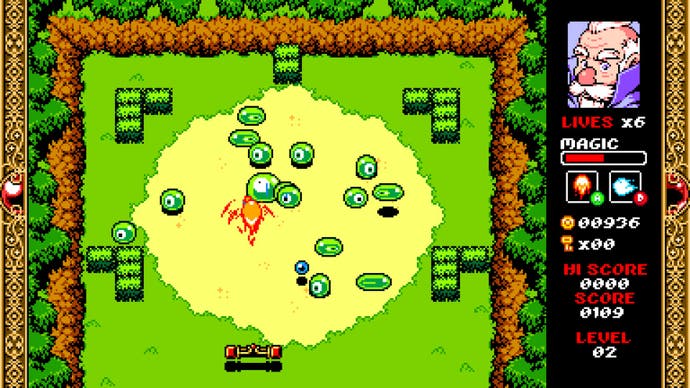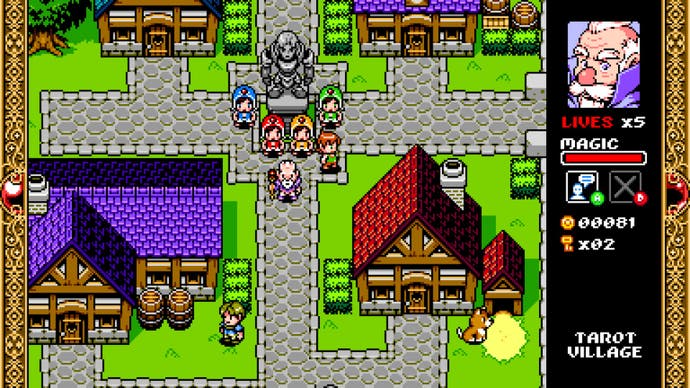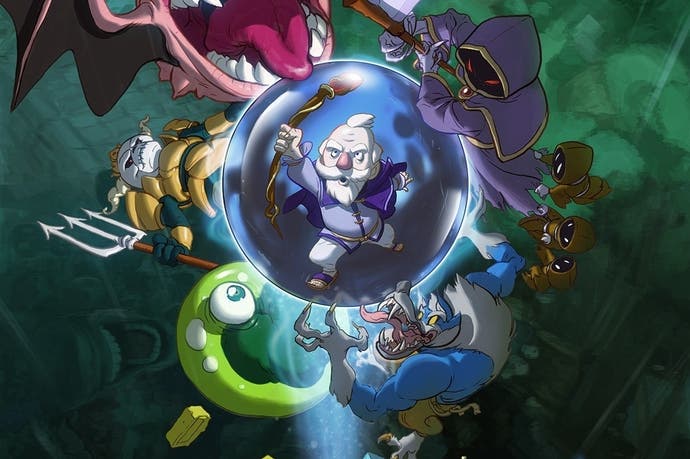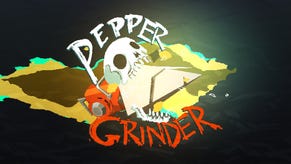Wizorb - Ouya review
Blockbuster?
There are some ideas so ludicrous, yet so strangely perfect, that you wonder why nobody thought of them before. Case in point: why not squeeze a JRPG into Breakout? That's what Wizorb does, and the result is quite wonderful.
You play as Cyrus, a wizard who boasts the uncanny ability to transform himself into a tiny bouncing ball. In this form, his wand becomes a paddle and you can use it to ping him around the screen, clearing blocks and bad guys by bouncing off them. True to arcade classics like Arkanoid, some blocks drop power-ups and coins, and one of the first skills you'll need to master is judging when it's safe to dash across the screen and when to let them fall rather than lose a life.
Your wizardly ways mean that you have a couple of special powers that make your task slightly easier. You can shoot fireballs directly up the screen, or add a fire effect to the ball to make it more destructive. You can also summon gusts of wind that can reverse the direction of the ball in flight. There's also the option to teleport the ball before launching it, placing it in a specific place on screen, which really helps to clear those last annoying blocks tucked away in hard-to-bounce areas.

So far, so familiar. What makes Wizorb stand out is that each world is but one stop on a larger RPG-style map, and in each one your goal is to amass as much gold as possible. After each world, you take your winnings back to the monster-ruined village of Tarot, where you can donate it to various NPCs in order to rebuild key facilities.
This adds more to the game beyond cheery retro whimsy. Wizorb is not generous with extra lives or continues, but you're always able to continue in exchange for 250 gold. That's a big chunk out of your bank, however, and forces you to constantly gauge the value of pressing ahead, at the risk of spending the very gold you're supposed to be collecting for the village, or retreating with a fraction of your potential spoils and starting a world over.
The RPG setting also impacts the game in more subtle ways. Keys can be collected, and then used by bouncing the ball into locked doors. These can contain bonus rooms, or Final Fantasy-style shops where extra lives and bonus powers can be purchased. Again, weighing the benefit versus the cost is vital, since completing a world having spent all your gold is a complete waste of time.
Developer Tribute has not only struck a moreish balance between the two genres, but also hits all the expected aesthetic targets as well, right down to text box conversations with villagers and the pixel art dog who simply says "Woof woof".

Wizorb first appeared on Xbox Live Indie Games back in 2011, and has since made its way to Steam, iOS and PlayStation Minis. Why review it now? Well, mostly because it's great and hasn't been reviewed before, but also because the Android version has debuted on the Ouya, offering a handy comparison to a host of rival platforms.
The good news is that the game itself has ported across beautifully, but it does no favours to Ouya's dedicated controller. This is a game that requires fast reactions and precision in order to keep the ball in play, and the gluey thumbstick of the Ouya joypad too often lets the player down. There's a stickiness to the horizontal movement that is downright fatal on more than one occasion, and switching between the Xbox 360 original and Ouya's version makes this shortcoming painfully obvious.
Of course, one of the Ouya's strengths is that it can work with different controllers, so provided you opt for a Dual Shock instead there's no reason not to make this one of the the first additions to your Ouya library.









